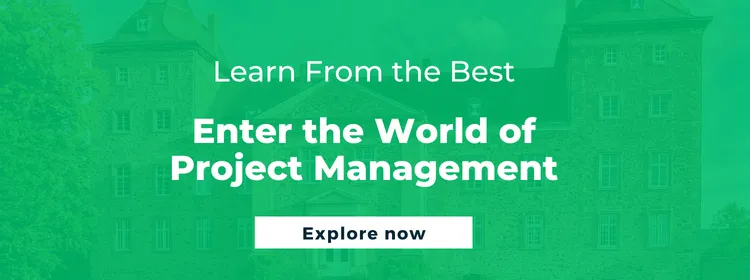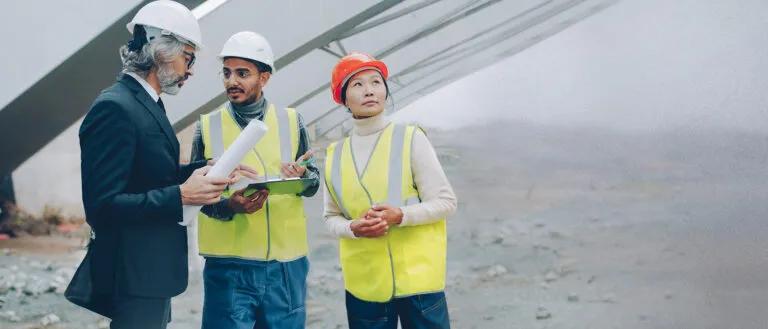How to Ace Any Technical Project Manager Interview and Get Hired

To take a nautical analogy, think of project managers as the navigators of a ship and you’ll understand the importance of their role. After all, a ship cannot reach its destination without a skilled navigator. According to a KPMG study, 70% of organizations suffered at least one project failure. The reasons for this can be multiple: lack of budget, absence of the latest technology, and poor resource management. That’s why interviewers often use standard questions designed to gauge candidate knowledge and skills while hiring technical project managers and enhance productivity and efficiency. If you want to prepare for a technical project manager interview, it’s always a good idea to augment your project management skills with some preparation. This list of questions that interviewers may ask during the session is a great way to get started.
How to Prepare for a Technical Project Manager Interview?
Questions in an interview for the role of the technical project manager often focus on different things. This includes testing the candidates’ interpersonal and technical knowledge, their project management skills, as well as their preparedness. Often, interviewers also present hypothetical situations to candidates.
- Be Ready to Think on Your FeetManaging a project sometimes means making smart decisions in a short span of time. Ask someone you trust to ask you different situational questions so you can practice what to do when you’re under pressure.
- Read Case Studies: If you’re stuck, try reading about projects that went well and those that didn’t. This can help you learn from what other people have gone through and give you ideas for what to talk about in your own interview.
- Interviewing Remotely: Appearing for an interview remotely on video call comes with a whole gamut of challenges including loss of internet connection, power outage, and learning video conferencing etiquette. Being aware of these challenges before appearing for the interview is half the job done. This will boost your confidence and eliminate interruptions. For instance, if your home is too noisy and you can appear for the interview from a quiet cafe. Also, don’t forget to test the internet connectivity of the cafe beforehand so that you don’t have bandwidth issues on the big day.
- Do Some Research About the Company: Learning about the company you’re interviewing with can help you feel more confident before the meeting. Show that you know what the company’s goals and vision are and how your experience aligns with their vision.
- Ask Questions at the End of the Interview: This is a common tip for all interviews, but it’s especially important for project management interviews. Your ability to ask the right questions can make or break a project. Prepare a list of questions you want to ask before you go. You can also write down things you want to ask about during the interview.
There is no disputing the fact that it isn’t possible to know exactly what you will be asked. But if you prepare well for the interview and answer questions based on the most important areas or competencies, you have a better chance of being chosen.
Common Technical Project Manager Interview Questions
1. Which Project Management Software and Tools do You Prefer Using, and Why?
Interviewers want to know how adept you are at using project management software because it accounts for a significant portion of the project management business.
The best way to respond to this is to look up the project management software and tools that the organization uses before you go for the interview. Be sure you talk about the software you’ve used in the past. Also include your areas of expertise. It is great to include common project management tools like RACI charts or collaboration software like Asana or Trello as well.
2. How Did You Improve Your Knowledge in the Last Year
The answer to this question is indicative of how seriously you take your role as a project manager. Those who are truly invested in their profession will continue to educate and update themselves at least once during the course of the year. It is important to demonstrate to your interviewer that you are willing to take in new information and ideas and update yourself regularly. You might consider exploring one of the project management courses on Emeritus from some of the world’s best universities as they add immense value to your resume.
3. Do You Have Outsourced Personnel or Supplier Management Experience?
The interviewer is interested in hearing about any time you’ve spent collaborating with remote teams or external vendors. The inquiry is simple and directly related to your experience so be sure you’re thorough with the response you give.
4. How Would You Rate Your Project Management Skills
Modesty is not necessary in this situation. Rating yourself highly can demonstrate your self-assurance. You need to provide evidence to support your assessment. Therefore, give an example of how your skills are beneficial to complete a project successfully. To make it simpler for the interviewer, rate yourself on a scale of 1 to
5. Tell Me the Best Way to Allocate Resources.
Managing a project involves more than just giving orders; it also involves making the most of limited resources. By asking this question, the interviewer will examine your theoretical and practical knowledge as a project manager.
6. Tell Me the Specific Training You Have That Would be Relevant to This Project Manager Job?
To respond to such a question, you need to elaborate on the relevant courses for your job role and ones that showcase your project management skills. If you have already pursued a PM certification course you can describe it. If you have learnt on the job, speak about projects where your skills as a project manager have been tested.
7. Do You Have Budget Management Experience?
Managing the project’s finances effectively is crucial. So, your answer to this question can make all the difference. The interviewer wants to know how well you are in budget negotiation, management, and efficient use, as these are the primary responsibilities of a project manager.
8. How Would You Deal with a Situation Where Your Project is Behind Because the Resource You Booked is Being Used by Another Urgent Project
The recruiter’s goal is to understand your problem-solving abilities. This can be done by examining how you tackle a stressful situation where you need to finish the project with fewer resources. They are looking to see if you can handle stress and uncertainty on the job. Also, how well you perform under pressure, and whether or not you would be a good manager are being tested. So think carefully about your response to such tricky questions about hypothetical situations.
9. What’s the Difference Between Project Management and Technical Project Management?
The prime differences between a technical project manager and a project manager are:
- A technical project manager should bring technical expertise to handle a project. Meanwhile, a regular project manager manages the project in a more generic way. He/she may or may not be an expert in the technical field
- A technical project manager should have expertise in technical concepts. This includes scrum methodologies, and certification in CompTIA, PRINCE2 Foundation, and PRINCE2 Practitioner.
- A regular project manager doesn’t need to be proficient in the above technical skill. However, they should be a subject matter expert on project management areas such as planning, budgeting, risk management, pivoting, and monitoring.
10. What is the Largest Problem That You Have Faced to Date as a Project Manager?
The interviewer asks this question to test the candidate’s fortitude. The main objective is to understand how the candidate determines the problem and tackles it. If you have faced any critical situations as a project manager role in your previous organization, you can elaborate on how you have tackled it. Since there can be no universally applicable solution to any problem, your response will be entirely contextual, based on your skill set, and what you perceive as a challenge.
ALSO READ:Who is a Technical Project Manager and How to Become One in 2022
Questions You Should Ask the Interviewer
Here are some of the questions that you can ask the interviewer at the end of the technical project manager interview:
- How would you describe the responsibilities of the position?
- What are the biggest challenges of this job?
- What’s one thing you’re hoping a new person can bring to the role?
- What does it take to be successful here?
- What about my resume caught your attention for this position?
- For the first three months of our relationship, how can I best demonstrate my worth to you?
- Will I be given a chance to learn new skills and advance in my current position/company?
- During the next five years, where do you see this company heading?
Tips for Technical Project Manager Interviews
Though this guide covers sample questions and offers direction for your answers to prepare for the technical project manager interview, a few more tips and tricks you can have up your sleeve:
- Highlight accomplishments and advantages, supported by evidence
- Pay attention to the lessons you’ve taken from your past successes and failures
- Use your ability to think critically and creatively to solve problems
When applying for the position of a technical project manager, you won’t know what exactly to expect from the interview. But, having a base to build on helps.
You should also consider exploring Emeritus’ online project management courses to upgrade your technical knowledge and boost your project management skills to crack the interview.
Write to us at content@emeritus.org





